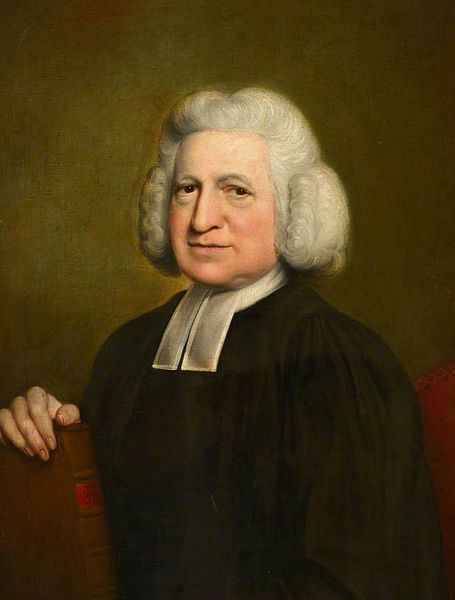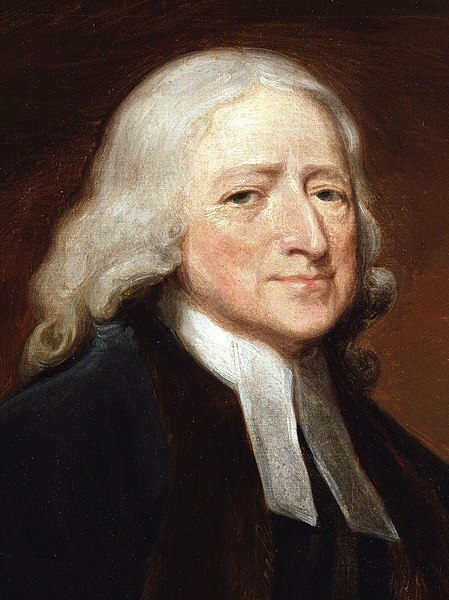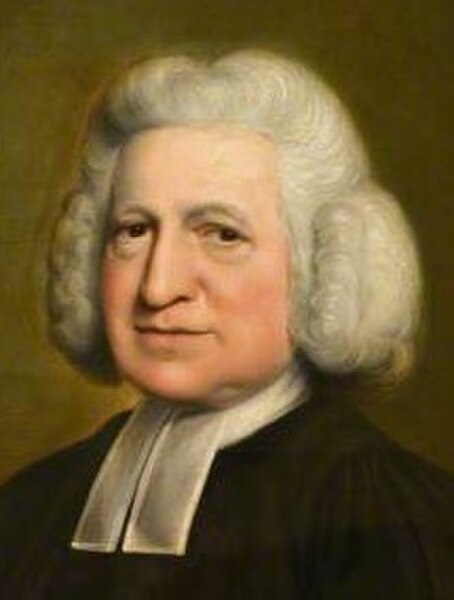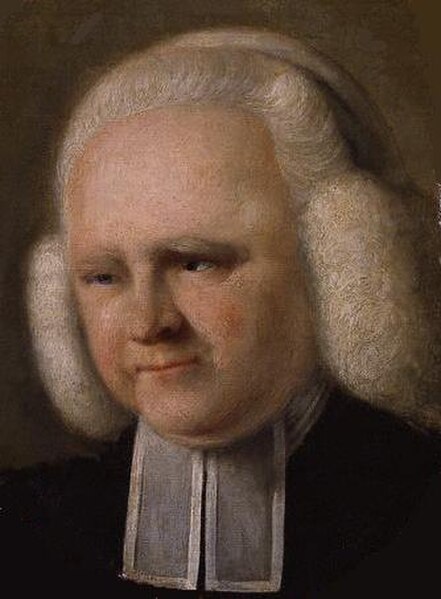Charles Wesley was an English Anglican cleric and a principal leader of the Methodist movement. Wesley was a prolific hymnwriter who wrote over 6,500 hymns during his lifetime. His works include "And Can It Be", "O for a Thousand Tongues to Sing", "Christ the Lord Is Risen Today", "Love Divine, All Loves Excelling", the carol "Hark! The Herald Angels Sing", and "Lo! He Comes With Clouds Descending".
Portrait by John Russell
The 'Lily Portrait' of a young Wesley in the New Room, Bristol
Plaque in Marylebone commemorating the site of Wesley's house (now a pub)
Monument in St Marylebone Old Churchyard at the position of Wesley's original grave
Methodism, also called the Methodist movement, is a Protestant Christian tradition whose origins, doctrine and practice derive from the life and teachings of John Wesley. George Whitefield and John's brother Charles Wesley were also significant early leaders in the movement. They were named Methodists for "the methodical way in which they carried out their Christian faith". Methodism originated as a revival movement within Anglicanism originating out of the Church of England in the 18th century and became a separate denomination after Wesley's death. The movement spread throughout the British Empire, the United States and beyond because of vigorous missionary work, and today has about 80 million adherents worldwide.
John Wesley
Charles Wesley
George Whitefield
The first Methodist chapel, "The Foundery", London.








